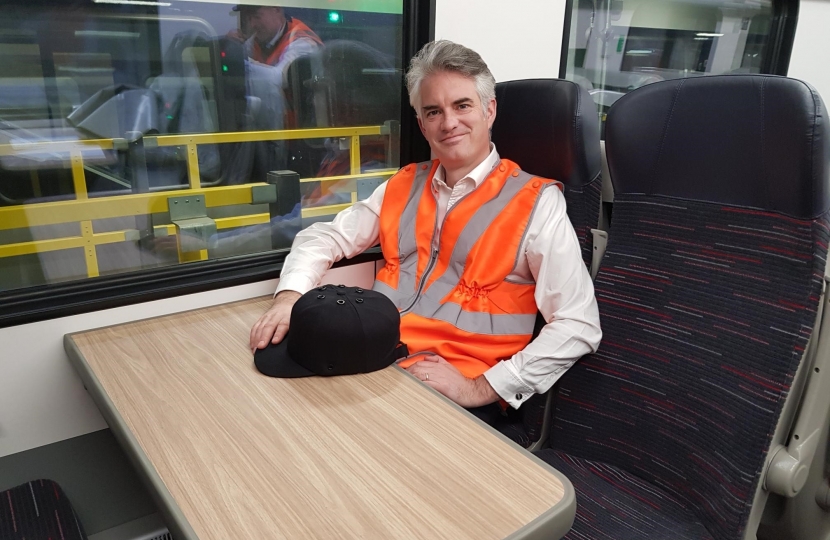
James Cartlidge welcomed the changes to season tickets. - Credit: James Cartlidge
Greater Anglia will cease to run rail services later this year when a new government body, Great British Railways, takes over the operation of the nation's trains across the country.
The new body will sell tickets, organise timetables, and set prices for all services. It will hire private companies like Abellio, Stagecoach or First Group to actually operate the trains.
But it will be GBR that sells the tickets and that passengers have their contract with - the government will keep the fares and pay a fixed fee to the company running the trains.
It is a similar model to that operated by Transport For London which is responsible for the Tube, the London Overground and the capital's buses.
Eventually all passenger trains are expected to run in GBR branding - although industry experts expect that they may also reflect their regional identity. In this area they could run as GBR-Anglia.
The government has effectively been financing the rail industry since the start of the first pandemic last March when passenger numbers across the country fell to less than 5% of what it had been.
Since then more people have started travelling by train - but it is still only about a third of pre-pandemic levels.
The government announced last September that the franchise system, which has operated trains since privatisation in the mid-1990s, would be replaced because it was no longer financially sustainable.
Great British Railways will absorb Network Rail as well as being responsible for train services - and will issue its first operational contracts later this year, initially for two years while the new structure is set up.
One thing that will change soon is that GBR will start selling part-time season tickets to commuters who want to travel to work two or three days a week. The Department for Transport said this would offer savings of hundreds of pounds to part-time commuters.
It is a policy that South Suffolk MP James Cartlidge has been lobbying for ever since he was first elected in 2015.
Welcoming the changes, he said: "‘I argued consistently prior to covid for part-time season tickets, including holding my first Parliamentary adjournment debate on the matter, because I felt strongly that the pricing system for rail travel must reflect modern working patterns.
"This has become even more important with Covid, given a raft of reputable surveys showing employees not wanting to return to the office full time, but flexibly, maybe 3 days a week.
"I therefore warmly welcome the announcement of this major step forward in flexible ticketing, including part time options. Of course, commuters will understandably want to see the exact details applying to their particular journey, but this sounds like a huge step forward to a rail ticket system in line with the way people want to commute compared to traditional assumptions."
The Department of Transport insisted this was not a nationalisation of the railways it believes to have failed the railways.
A spokesman said: "Rather, it is simplification. While Great British Railways acts as the guiding mind to coordinate the whole network, our plan will see greater involvement of the private sector – private companies will be contracted to run the trains, with stronger competition to run services."
Prime Minister Boris Johnson was responsible for London's transport network when he was mayor of the capital - and that uses a similar structure to that which will now run the rail industry.
He said: “I am a great believer in rail, but for too long passengers have not had the level of service they deserve. By creating Great British Railways, and investing in the future of the network, this government will deliver a rail system the country can be proud of.”
Published by the East Anglian Daily Times.


